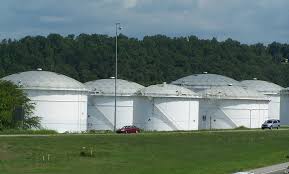
ATLANTA – Gasoline prices could be headed up at the start of the summer driving season following the shutdown of a major pipeline hit by a cyberattack.
Alpharetta-based Colonial Pipeline reported Friday it was the victim of an attack involving ransomware that forced one of the largest fuel transport systems in the nation to halt most of its operations. Colonial’s 5,500-mile pipeline system runs from Texas to New Jersey.
“Maintaining the operational security of our pipeline, in addition to safely bringing our systems back online, remain our highest priorities,” Colonial wrote in a news release Sunday.
Colonial has hired independent cybersecurity experts to determine the nature and scope of the ransomware attack and put an operations team to work developing a system restart plan. The goal is “substantially restoring operational service” by the end of this week, the company wrote in an update Monday.
While four main lines remain out of service, some smaller lines connecting terminals with delivery points are now operational.
The full system will not be restored until Colonial officials believe it is safe to do so and in full compliance with federal regulations, the company stated. The U.S. Department of Energy is leading the federal response.
Ransomware attacks have become a growing problem for both government and private sector computer systems. In ransomware attacks, hackers block access to an organization’s computers and threaten to keep them blocked and/or publish sensitive private information unless a ransom is paid.
In one example, a ransomware attack in 2018 affected nearly 3,800 city of Atlanta computers, forcing the city to shut down its court system and delay many other services.
The perpetrators demanded a ransom of $51,000 in Bitcoin to restore access to the computer systems they had encrypted, which the city refused to pay. A federal grand jury indicted two Iranian nationals in the attack later that year.
